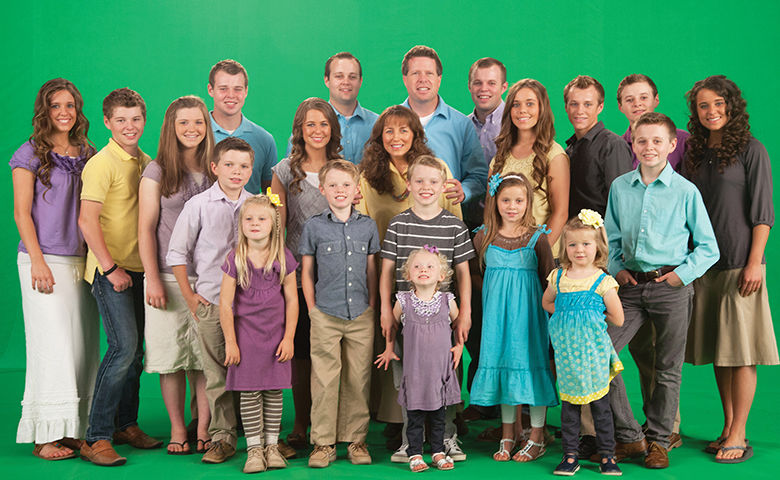There was a show on HBO in the not-so-distant past called “Big Love,” which followed the travails of a practicing polygamist in Utah. I think they got the title wrong and that I could have come up with several alternative titles, but I want to continue to write for The Tidings so I will refrain from such linguistic exercises.
Though the premise had salacious intent written all over it, the show was played as a straight family drama and garnered many awards and accolades from all the right people.
It was certainly a show made for its time, as so-called “alternative” family structures that now populate TV-land have bent, folded and mutilated the Catholic perspective of the family dynamic into an unrecognizable heap I believe they keep in cold storage in the corner of the Television Academy of Arts and Sciences Library next to old episodes of “Ozzie and Harriet.”
In general, portraying families on film and TV is a dicey proposition. I recall having to read “Cheaper by the Dozen” in the seventh grade, a million years ago. Never cared for that, even though it was a rather tame (even by those “way back when” standards) story of a big family from a different era.
I came from a big family myself, and I just felt disconnected from the folks described in the book, which may have had more to do with my growing up in a world where there were only two kinds of people … Catholics and those who should be. And the premise of the book which was supposed to be so strange — a large brood of children — to me, the youngest of 10, just wasn’t that unique as we knew more than a few families that had even more kids than us.
Things are a little different now. My wife and I were blessed with only three children.
When I say “only” which I invariably do, people give me shocked looks, and usually say things like “How do you manage that many kids?”
Really? I have many brothers and sisters with more children. I have a nephew with 10. If anything, it is a little illuminating to consider that three children from the same parents under the same roof can garner any sort of special attention.
That attention should be reserved for really heroic and special people, like the kind Pope Francis recently mentioned.
“In a world often marred by selfishness, a large family is a role model for solidarity and sharing and this benefits the whole of society.”
Large families, as Pope Francis spoke so eloquently about, used to be more of a “Catholic” thing than, sadly, they are now. Although television and its movers and shakers are compelled to worship at the altar of “diversity” and social engineering with shows like “Modern Family” and “The Fosters,” they also know there remains an audience for something else.
Big families are becoming big business for television networks, as the reality show “19 Kids and Counting” makes abundantly clear. It is a program so successful, it has had to undergo several title changes since its inception as “17 Kids and Counting” back in 2008.
The Duggar family, though extraordinary in the sheer numbers of children, as well as their incredibly ordered and structured fundamentalist Protestant worldview, remain at the same time very ordinary in so many important ways.
Personally, growing up as the “baby” in a family of 10 children, I never quite experienced the levels of calm and unclutteredness the Duggars experience, but I have no reason to believe this is some kind of special effect trickery on the part of the television network which showcases them.
As with all things television, one success will lead to multiple attempts to cash in on that one success. There are other shows focusing on large families. One fairly new one chronicles a family of “little people” with several children. This family isn’t as well organized as the Duggars — who is? — but they share a lot of the same attributes.
Still another show is on the way, called “The Willis Family,” which is a mom and dad with 12 children who all seem to be able to play instruments. We had an old beat up hand-me-down piano in our dining room which one of our sisters could play by ear, and that was about it when it came to musical ability … other than a couple of decent singing voices.
The Willis family, the Duggars and the other parental units with a lot of offspring have one other very big thing in common. A mom and a dad. Just one of each.
They also are living breathing examples of Tolstoy’s bon mot that “All happy families are alike; each unhappy family is unhappy in its own way.” The litany of dysfunctional families on reality television provides even more fodder for Tolstoy’s hypothesis.
Who knows, maybe someday they’ll do a reality television show about a big Catholic family. In the meantime, these shows will still hold the imagination of the audience because I believe they strike deep into the heart of every husband and wife who know what their vocation is.
Even though these shows will obviously never garner the awards or adulation of nuanced and modernist HBO shows, they still manage to demonstrate what “big love” is really all about.

